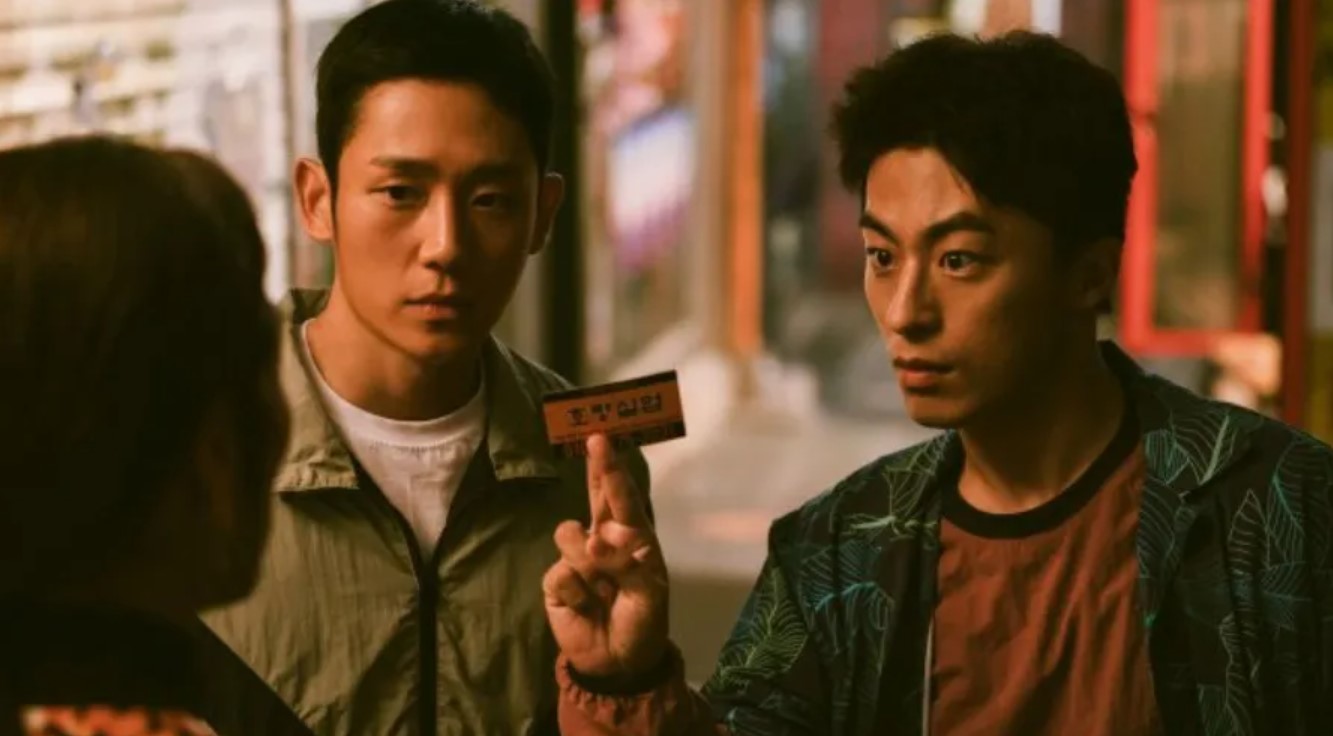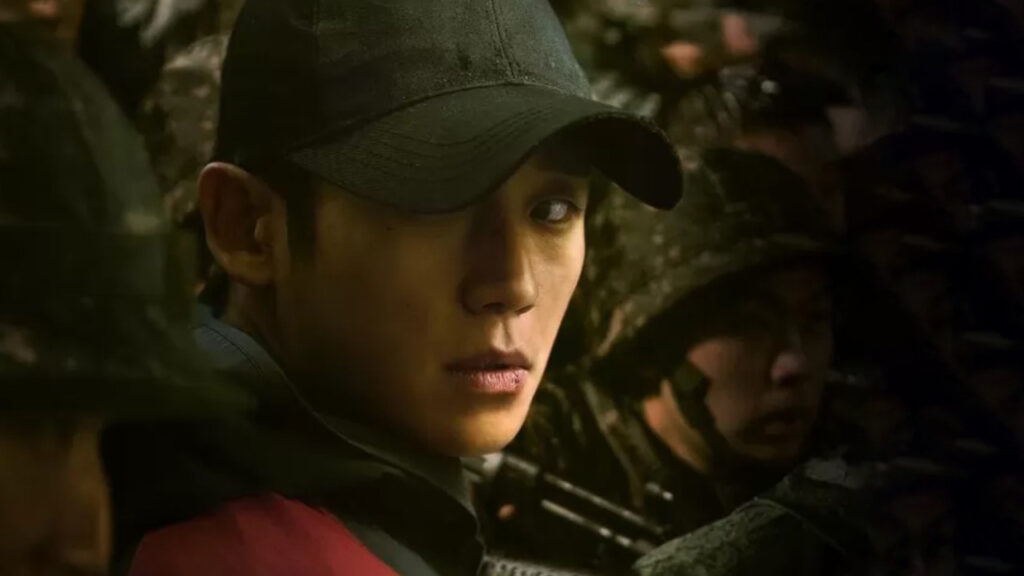
DP Season 2 Full Review: A Brutally Honest Look at the Drama, Action, and Deeper Meaning Behind the Hit Series
What if a K-drama could shake you to your core—not with romance or fantasy, but with brutal truth? DP Season 2 does exactly that. Returning with sharper tension, deeper trauma, and bolder storytelling, it dares to expose the dark realities of military life that most dramas only hint at. In this DP Season 2 Full Review, we break down why this powerful sequel is more than just a continuation—it’s a gut-wrenching reflection of systemic injustice, emotional warfare, and the quiet battles soldiers fight every day.
If you’re wondering whether DP Season 2 is worth your time, how it compares to Season 1, or whether the show delivers on its promise of truth and impact—this review is here to help. We’ll explore the drama’s strongest moments, its hidden messages, and what it means for viewers craving a story that’s both gripping and grounded in reality.
Keep reading to uncover the emotional, social, and cinematic layers behind one of Netflix’s most thought-provoking Korean dramas.
Table of Contents
TogglePlot Summary of Season 2 (No Major Spoilers)
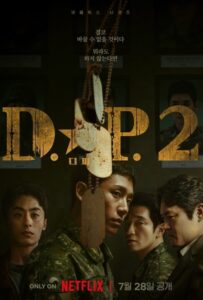 Season 2 of DP picks up right where the first season left off—after a shocking cliffhanger that left viewers questioning the very structure and morality of the military system. This time, the story dives even deeper into the emotional and ethical weight carried by the Deserter Pursuit team.
Season 2 of DP picks up right where the first season left off—after a shocking cliffhanger that left viewers questioning the very structure and morality of the military system. This time, the story dives even deeper into the emotional and ethical weight carried by the Deserter Pursuit team.
An Jun-Ho (played by Jung Hae-In) and Han Ho-Yeol (played by Koo Kyo-Hwan) return to track down soldiers who have fled their posts, but the mission feels heavier now. With each case they encounter, the emotional toll intensifies, revealing new layers of trauma, corruption, and moral gray zones within the system they serve. While the chases continue, the focus shifts toward why these young men are deserting in the first place—and whether the cycle of abuse and silence can ever be broken.
The pacing is tighter, the stakes are higher, and the consequences are no longer just personal—they’re political. As media scrutiny and public opinion begin to turn against the military, the characters are forced to confront not only the deserters they’re assigned to catch, but the very institution they represent.
Without revealing major spoilers, DP Season 2 offers a compelling, emotional continuation of the story. It stays true to its gritty roots while evolving into a more socially conscious and psychologically complex narrative.
Character Development Breakdown
One of the most striking strengths of DP Season 2 lies in its character development. The emotional depth and psychological evolution of the main cast take center stage, offering viewers not just a military drama, but a human story about inner conflict, broken systems, and silent resistance. Each character is shaped by the trauma they endure—and how they respond to it feels more real than ever.
An Jun-Ho (Jung Hae-In)
Jun-Ho begins Season 2 as a more hardened, emotionally conflicted version of his former self. Haunted by the events of Season 1, he starts to question the very purpose of the DP unit. His silent defiance, emotional restraint, and inner turmoil reveal a man torn between following orders and doing what’s right. His growth is subtle but powerful—he becomes less reactive and more reflective, symbolizing the emotional cost of conscience in a rigid system.
Han Ho-Yeol (Koo Kyo-Hwan)
Ho-Yeol brings back his offbeat humor and unpredictable charm, but it’s clear that the cracks are starting to show. In Season 2, we see more vulnerability beneath his light-hearted exterior. His loyalty to Jun-Ho deepens, and we get glimpses of the burden he carries as someone trying to protect both himself and others in a hostile environment. His arc adds emotional balance, with moments of warmth and quiet desperation.
New Characters and Commanders
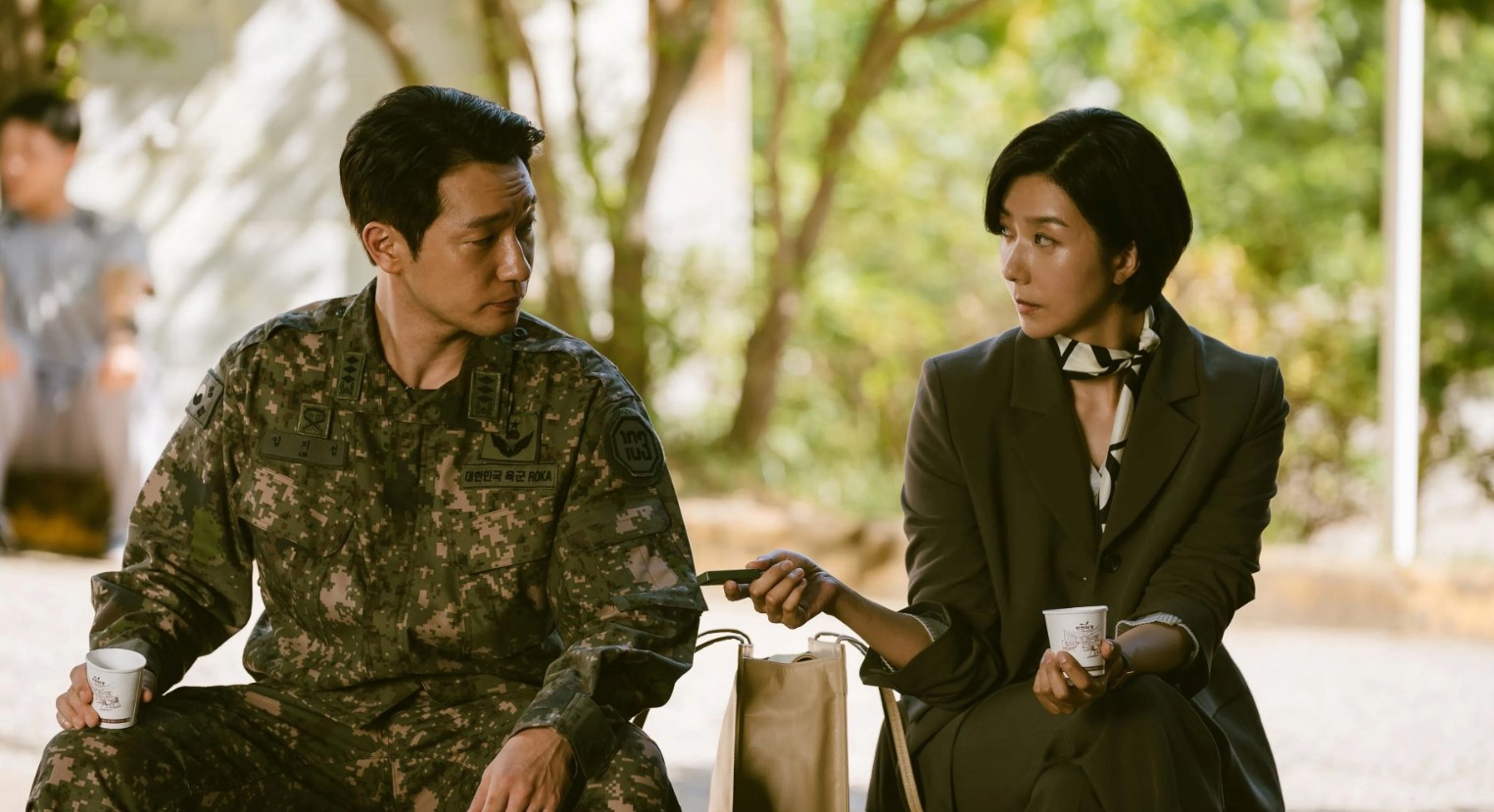 Season 2 introduces several new faces—some allies, others adversaries—each representing different aspects of the military power structure. These characters add moral complexity to the narrative, blurring the lines between hero and villain. Their development isn’t just about individual arcs—it reflects the system they operate in, showing how institutional pressure shapes human behavior.
Season 2 introduces several new faces—some allies, others adversaries—each representing different aspects of the military power structure. These characters add moral complexity to the narrative, blurring the lines between hero and villain. Their development isn’t just about individual arcs—it reflects the system they operate in, showing how institutional pressure shapes human behavior.
The Deserters
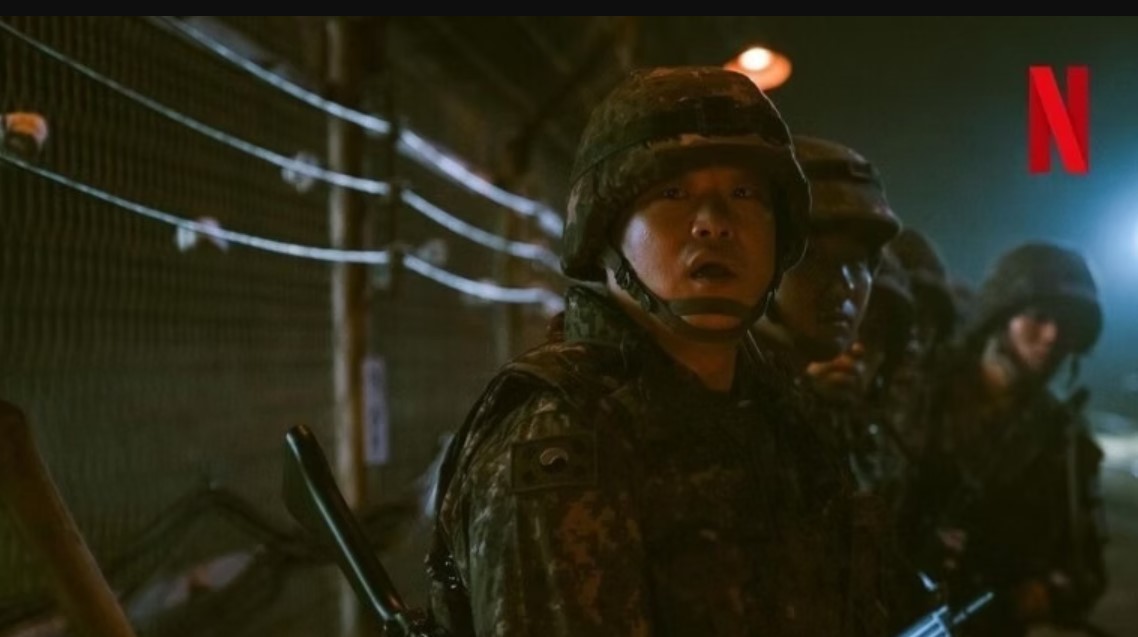 Though not the central characters, the deserters in Season 2 are more emotionally resonant than ever. Each has a backstory that forces viewers to confront uncomfortable truths—about bullying, mental health, injustice, and helplessness. Rather than treating them as fugitives, the show humanizes them, forcing both the D.P. team and the audience to ask: Are they really the problem—or just the product of one?
Though not the central characters, the deserters in Season 2 are more emotionally resonant than ever. Each has a backstory that forces viewers to confront uncomfortable truths—about bullying, mental health, injustice, and helplessness. Rather than treating them as fugitives, the show humanizes them, forcing both the D.P. team and the audience to ask: Are they really the problem—or just the product of one?
Strengths of DP Season 2
DP Season 2 doesn’t just continue the story—it elevates it. With sharper storytelling, deeper emotions, and braver social commentary, the second season stands out as a powerful and purposeful piece of drama. Here’s what makes it truly shine:
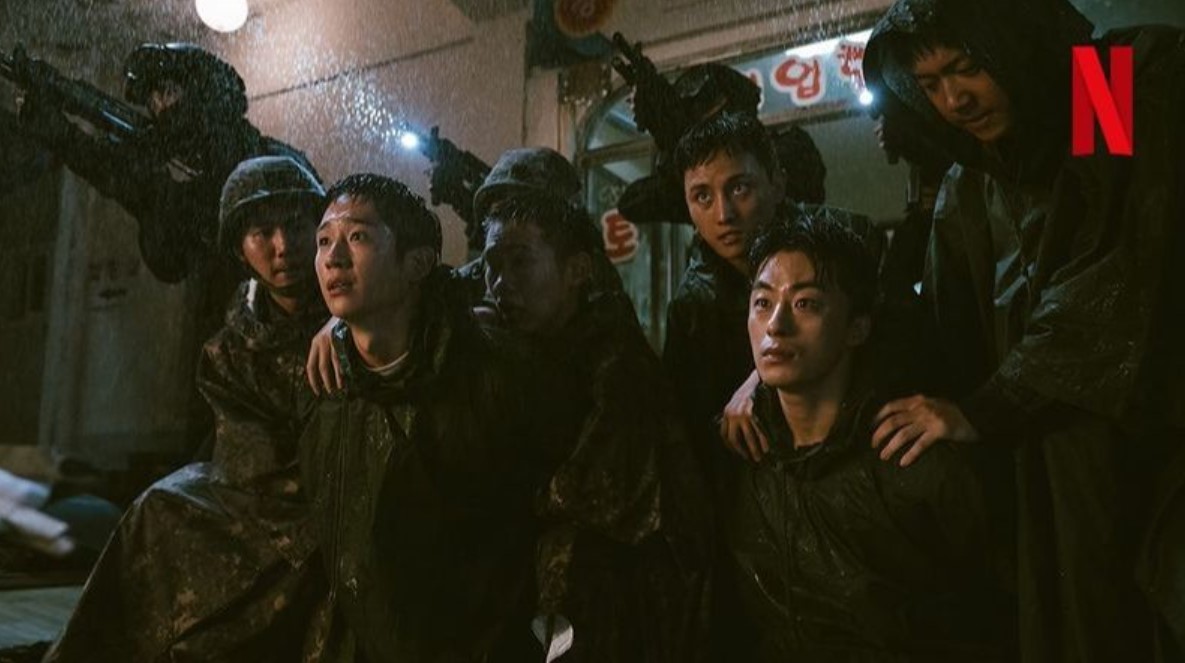 1. Emotionally Intense and Fearlessly Honest
1. Emotionally Intense and Fearlessly Honest
This season pulls no punches. It dives deep into the trauma, grief, and guilt experienced by both deserters and pursuers. The emotions feel raw and real—no melodrama, just truth. The writing doesn’t try to comfort you; it wants you to feel the discomfort that the characters are living through.
2. Tighter, More Focused Storytelling
With only 6 episodes, Season 2 wastes no time. There’s less filler and more purpose. Every scene builds tension or drives the plot forward. This tighter structure keeps you emotionally engaged and creates a sense of urgency that mirrors the chaos inside the characters.
3. Deeper Social Commentary
While Season 1 hinted at systemic issues, Season 2 throws them into the spotlight. It openly critiques military abuse, hierarchy, toxic masculinity, and the culture of silence. It pushes boundaries and forces viewers to reflect on real-world injustices—not just in Korea, but globally.
4. Top-Tier Performances and Direction
Jung Hae-In and Koo Kyo-Hwan deliver career-defining performances. The chemistry between them is stronger, more layered. Add to that the moody, cinematic visuals and immersive sound design, and you have a show that’s not just well-written, but masterfully executed.
5. Complex, Relatable Characters
Everyone in this story is flawed—and that’s what makes them compelling. Characters aren’t just good or bad; they’re victims of a system that crushes individuality. This complexity allows for emotional connection, even with characters you may not fully agree with.
6. Braver and Bolder Narrative Risks
From its darker tone to its moral ambiguity, DP Season 2 takes storytelling risks that pay off. It doesn’t aim to please—it aims to challenge. And that’s what makes it unforgettable.
Themes and Symbolism
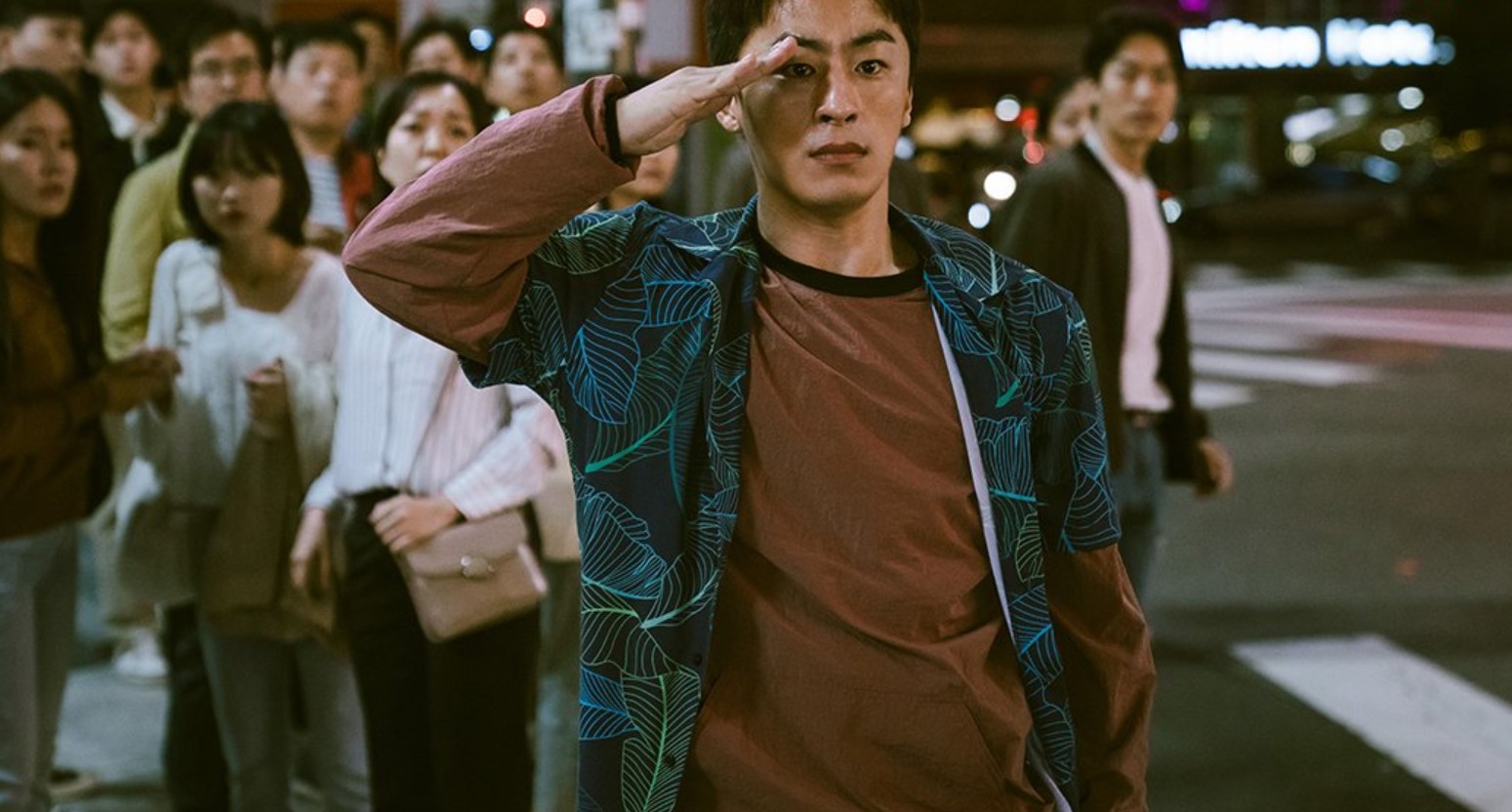 What sets DP Season 2 apart from many other K-dramas is its courage to confront uncomfortable truths through layered storytelling. Beneath the surface of action and drama lies a powerful network of themes and subtle symbolism that give the show its emotional weight and lasting impact.
What sets DP Season 2 apart from many other K-dramas is its courage to confront uncomfortable truths through layered storytelling. Beneath the surface of action and drama lies a powerful network of themes and subtle symbolism that give the show its emotional weight and lasting impact.
1. Injustice Within the System
At its core, DP Season 2 is a harsh critique of institutional failure—especially within the military. It reveals how young men are punished for trying to survive an environment filled with abuse, while those in power often escape accountability. The show asks: What happens when justice becomes just a word?
2. Individual vs. Institution
Nearly every character faces a clash between personal conscience and professional duty. Jun-Ho, in particular, becomes a symbol of inner resistance—torn between obeying orders and standing up for what’s right. This theme echoes throughout the season, challenging viewers to consider the cost of silence and the price of defiance.
3. Psychological Trauma and Mental Health
The series continues its unflinching exploration of mental health. The deserters aren’t portrayed as criminals but as emotionally broken individuals failed by the system. The trauma, isolation, and untreated psychological wounds they carry become central to the narrative—humanizing their decisions in powerful ways.
4. The Mask of Masculinity
DP questions what it means to “be a man” in a hyper-masculine environment. It shows how military life often forces men to hide vulnerability, suffer in silence, and perpetuate cycles of violence. Through its characters, the drama dismantles toxic masculinity one layer at a time.
5. Silence as a Weapon
One of the most chilling elements of Season 2 is how often silence is used—not just as absence, but as pressure. The silence of superiors, victims, and even the DP team becomes symbolic of complicity and survival in a corrupt system. In a place where speaking out can cost you everything, silence becomes both protection and punishment.
Symbolism to Watch For:
- Uniforms: Represent control, conformity, and loss of individuality
- Desertion: Symbolizes rebellion and a desperate search for humanity
- Closed doors: Signify secrecy, suppression, and unspoken truths
- Battered shoes or worn clothing: Emblems of a journey, pain, and endurance
DP Season 2 vs. Season 1: A Fair Comparison
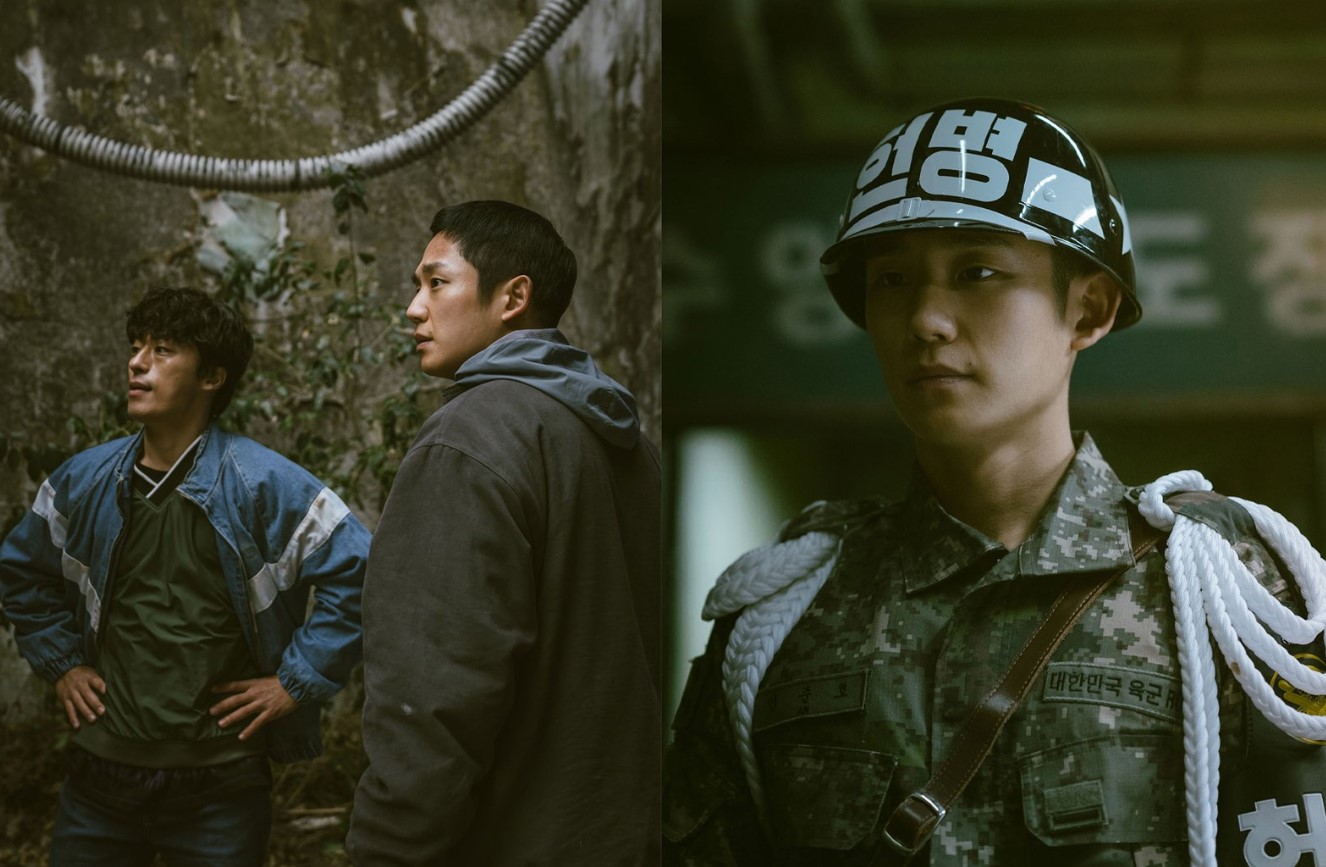 When comparing DP Season 2 to its predecessor, the differences are subtle in some areas and striking in others. Season 1 introduced us to a unique and emotionally raw concept—the Deserter Pursuit unit chasing down runaway soldiers—through episodic storytelling and heartfelt character moments. It balanced gritty realism with dark humor and gave viewers a glimpse into the emotional damage caused by a broken military system. The show’s strength came from its simplicity and focus, making each deserter’s story stand out as a personal tragedy.
When comparing DP Season 2 to its predecessor, the differences are subtle in some areas and striking in others. Season 1 introduced us to a unique and emotionally raw concept—the Deserter Pursuit unit chasing down runaway soldiers—through episodic storytelling and heartfelt character moments. It balanced gritty realism with dark humor and gave viewers a glimpse into the emotional damage caused by a broken military system. The show’s strength came from its simplicity and focus, making each deserter’s story stand out as a personal tragedy.
In contrast, Season 2 takes everything deeper. The tone is darker and heavier, focusing less on individual cases and more on the bigger picture: corruption, injustice, and the psychological toll of being trapped in an inescapable system. While Season 1 focused more on empathy and awareness, Season 2 pushes into anger, resistance, and truth-telling. The character development—especially for Jun-Ho and Ho-Yeol—is more intense, showing how both men are starting to break under the weight of their experiences.
From a production standpoint, Season 2 also feels more refined. The cinematography is more symbolic, the pacing is tighter, and the narrative structure is more cohesive. However, this focus means that new characters don’t get as much development time, and some subplots feel a bit rushed.
In short, Season 1 is powerful because it introduces a fresh concept with emotional honesty. Season 2, however, takes that concept and elevates it—making it more politically daring, emotionally charged, and thematically profound. If you’re looking for a more grounded and reflective experience, start with Season 1. But if you’re ready for something bolder and more confrontational, Season 2 delivers on every front.
Who Should Watch D.P. Season 2?
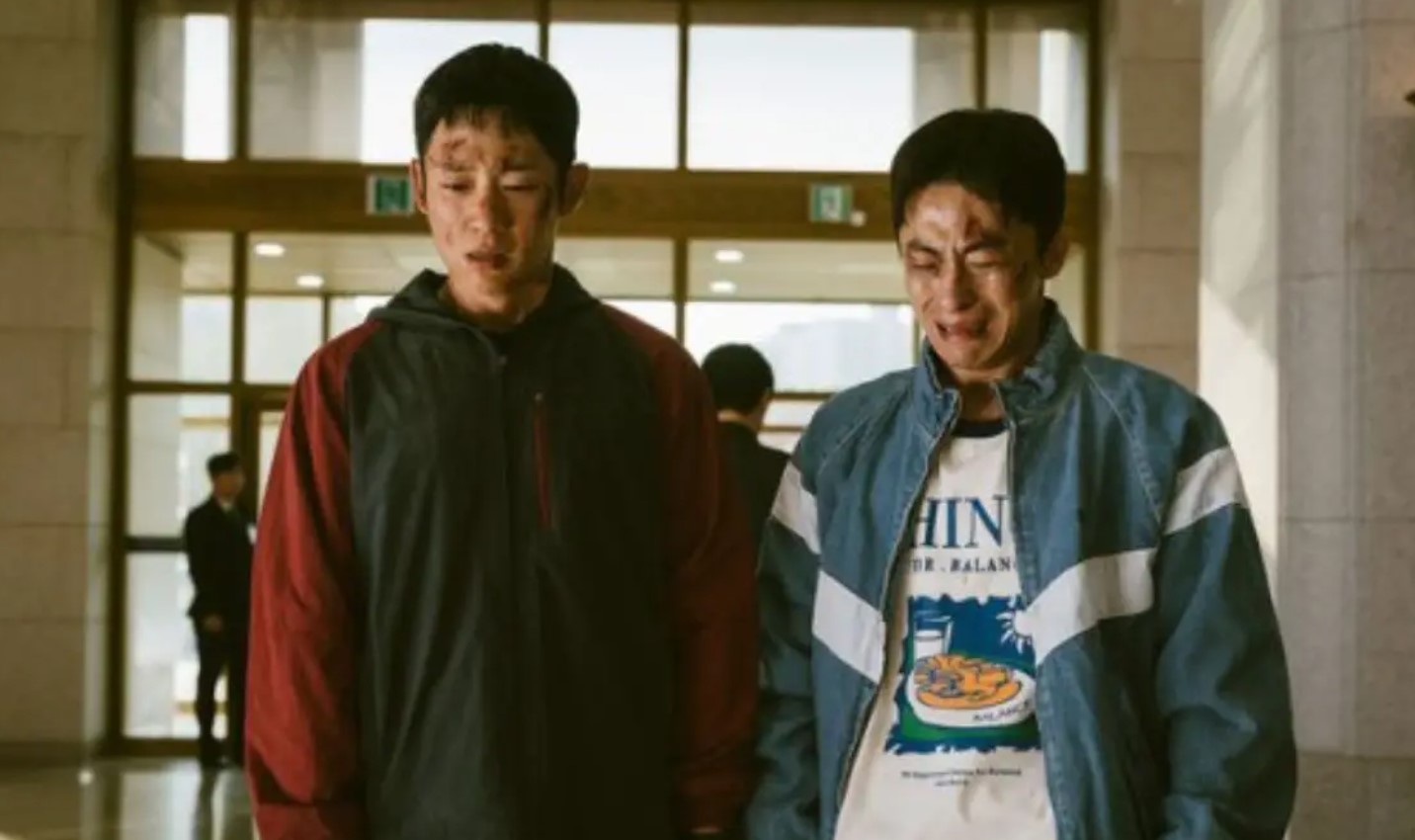 DP Season 2 is not your typical K-drama—it’s a raw, intense, and emotionally heavy series that digs deep into difficult topics. This makes it a perfect watch for certain viewers but not for everyone.
DP Season 2 is not your typical K-drama—it’s a raw, intense, and emotionally heavy series that digs deep into difficult topics. This makes it a perfect watch for certain viewers but not for everyone.
If you are a fan of realistic storytelling that doesn’t shy away from harsh truths, this season will resonate deeply. Those interested in exploring the psychological struggles and moral conflicts within a rigid military system will find the show both eye-opening and thought-provoking. It’s especially recommended for viewers who appreciated Season 1’s emotional depth and social commentary and want to see the story evolve into something more complex and socially conscious.
However, if you prefer lighthearted dramas, romantic comedies, or stories that offer an escape from reality, DP Season 2 might feel too heavy or distressing. The series deals with trauma, systemic abuse, and moral ambiguity in ways that can be emotionally taxing.
Ultimately, this season is best for viewers who want a drama that challenges their perceptions, provokes thoughtful discussions, and stays with them long after the credits roll.
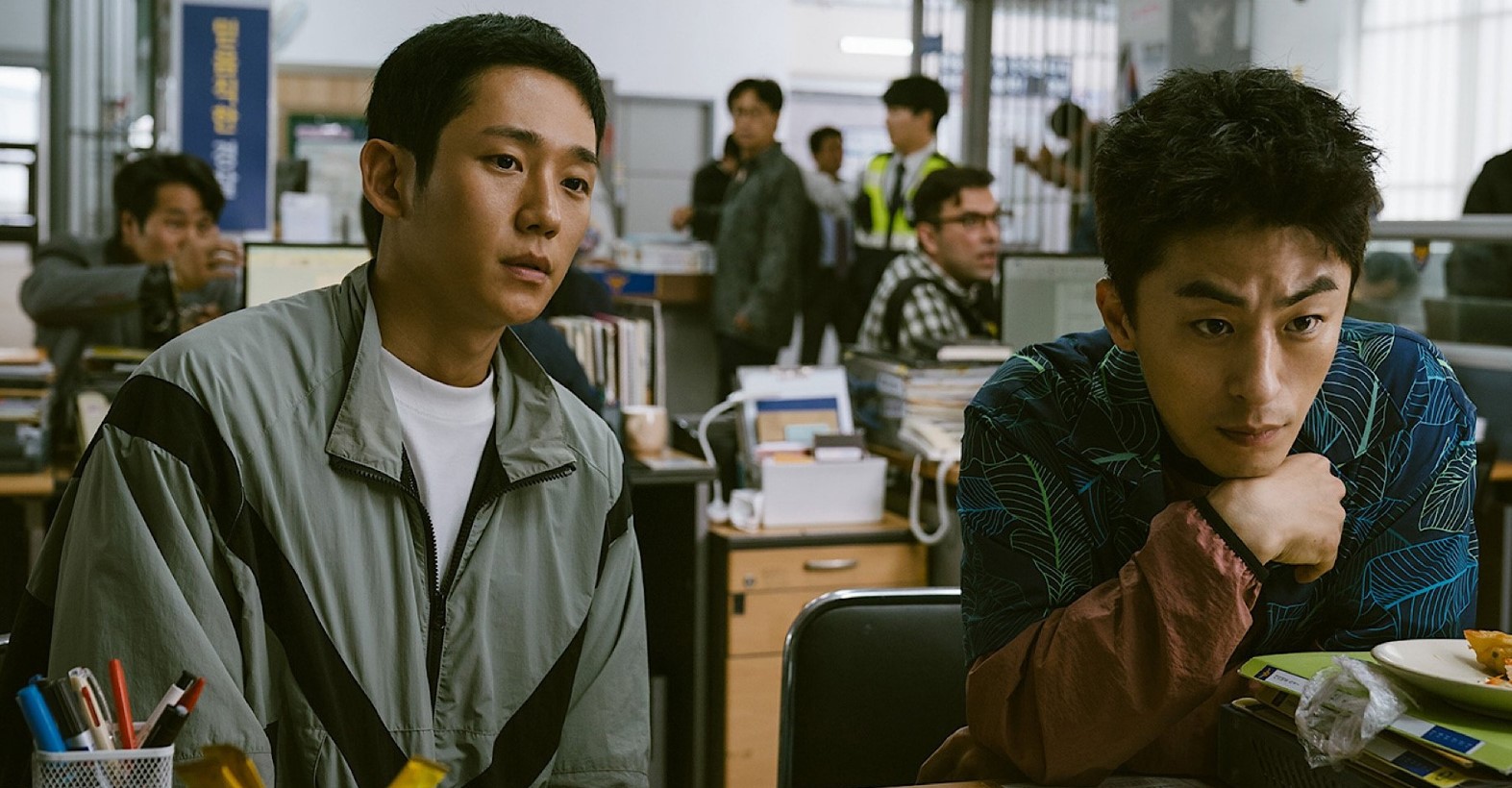 DP Season 2 is more than just a sequel—it’s a bold, unflinching exploration of pain, justice, and the human cost of a broken system. This season takes the raw emotion and gritty storytelling of Season 1 and pushes it further, delivering a series that challenges viewers to confront uncomfortable realities about military life and societal pressure.
DP Season 2 is more than just a sequel—it’s a bold, unflinching exploration of pain, justice, and the human cost of a broken system. This season takes the raw emotion and gritty storytelling of Season 1 and pushes it further, delivering a series that challenges viewers to confront uncomfortable realities about military life and societal pressure.
If you’re looking for a K-drama that combines intense action with meaningful social commentary and unforgettable characters, DP Season 2 is a must-watch. It doesn’t offer easy answers, but it leaves you thinking long after the final episode ends.
Through this DP Season 2 Full Review, we’ve uncovered why this series is not just entertainment—it’s a powerful conversation starter and a reflection of real-world struggles. Whether you’re a fan of Season 1 or new to the story, this season demands your attention and respect.
So, are you ready to watch DP Season 2 and experience one of the most gripping Korean dramas out there?
Frequently Asked Questions (FAQs)
1. Is DP Season 2 better than Season 1?
Many viewers find DP Season 2 darker and more emotionally intense than Season 1. While Season 1 introduced the story and characters, Season 2 dives deeper into social issues and psychological trauma, making it a more mature and thought-provoking experience.
2. Do I need to watch Season 1 before Season 2?
Yes, watching Season 1 is important because Season 2 continues the story directly. Understanding the characters’ backgrounds and the initial events will help you fully appreciate the emotional depth and plot developments in Season 2.
3. How many episodes are in DP Season 2?
DP Season 2 consists of 6 episodes. Each episode is tightly packed with intense storytelling and emotional moments, making the season concise but impactful.
4. What themes does DP Season 2 explore?
The show tackles serious themes like military injustice, psychological trauma, toxic masculinity, and the struggle between personal conscience and institutional duty. These themes highlight the harsh realities faced by soldiers within the system.
5. Is DP based on a true story?
DP is inspired by real-life experiences and true events related to military desertion in South Korea but is a fictional drama. The creator’s own military background adds authenticity to the story and its portrayal of military life.
6. Who are the main characters in DP Season 2?
The story centers on An Jun-Ho and Han Ho-Yeol, members of the Deserter Pursuit unit. Their personal struggles and growth are a core focus, alongside new characters who deepen the plot and highlight systemic issues.
7. Is DP Season 2 suitable for all audiences?
Due to its intense and sometimes disturbing themes, DP Season 2 is best suited for mature viewers who can handle heavy emotional content and social criticism. It is not recommended for viewers seeking light or escapist entertainment.
8. Where can I watch DP Season 2?
DP Season 2 is available exclusively on Netflix. A subscription is required to stream the series, which offers high-quality subtitles and dubbing options.

